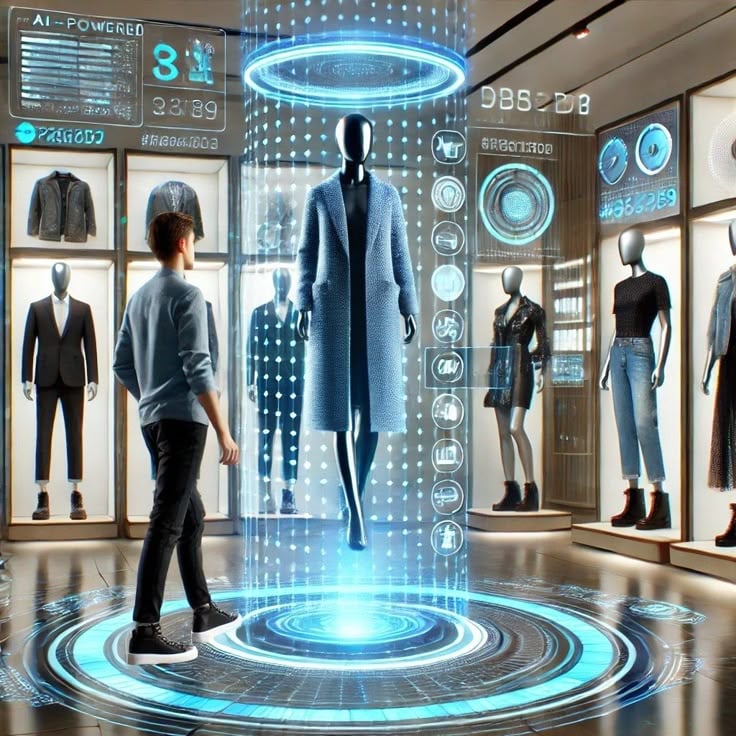Artificial intelligence quickly transforms any industry as it integrates with modern society, and the fashion industry is no different. By one Recent Fashion -Industry ReportThe sector has witnessed considerable growth due to globalization, the fast -growing online sector and the acceptance of advanced technologies such as AI.
AI solutions are widely used to improve the customer experience by understanding their behavior, purchasing patterns and preferences. This information helps fashion brands to adjust marketing strategies and product offers to adapt to the customer experience.
The growth of AI in fashion, currently worth $ 2.8 billion in 2025, is estimated at $ 170.62 billion in 2037. A form of AI that has the biggest impact is generative AI, with more and more brands investing in technology.
What is generative AI?

Generative AI quickly becomes the most popular and frequently used form of AI. Applications such as chatgpt have made generative AI accessible to companies and individuals and are now used for multiple functions. A Guide for artificial intelligence Describes generative AI as a model that can perform tasks such as classification, completing sentences, generating images or voices and making synthetic (artificially generated) data. This has enabled users to easily make new content much faster and without needing professionals for labor -intensive tasks. In the fashion industry, brands use generative AI to improve marketing campaigns, design new clothing and improve customer service.
Improve marketing campaigns
The marketing campaigns of the fashion industry have always focused on specific markets. Many of the most famous advertisements of fashion promote a lifestyle that consumers can reach by wearing their clothing. AI is used by the fashion industry to make their marketing campaigns targeted. In our research into The benefits of AI in fashion marketingWe have detailed how AI algorithms identify the best platforms and timing for online advertisements, guaranteeing maximum exposure.
Generative AI has allowed fashion brands to improve their advertisements even more by integrating AI images. The Italian luxury fashion house Etro created a campaign Featured AI-generated images To bring the theme of the collection of an imaginary place to life through essential landscapes and fantastic patterns. Digital artist Silvia Badalotti used “verbal inputs to guide AI in making a series of synthetic images, ranging from pastel -colored architectures to lush natural scenes and astral maps.”
Design
Fashion is a fast industry, with countless new collections released every year. Generative AI has the potential to bring about a revolution in the design process – not only by accelerating it, but also by making it more accessible. A groundbreaking example is Maison Meta, a generative AI studio that First AI Fashion Week In New York. The event contained a competition in which emerging designers used AI to develop model lines, with winning collections selected for physical production and online sales via retailer.
Although this increased accessibility is a welcome shift in an industry that is notor to break into notoir, there are still concerns about the potential loss of creative artistry. If clothing and campaigns can be generated by simple verbal prompts, there is a risk that skills in the field of human design can be overshadowed. In such a scenario, rather than opening the industry, AI could unintentionally make the industry even more exclusive – only people with the means and tools to effectively utilize his strength.
Customer service


Chatbots have become such an integrated part of how companies communicate with customers that it is now expected from most brands. These generative AI applications are used in the fashion industry to create a more personalized customer service. Luxury brand zenga, that’s often worn on the red carpetHas a new AI-driven service called Negna X. The brand has said that customers who spend 75% with Zegna X than those who walk into the store.
Generative AI enables customers to ask detailed, personalized questions and to receive immediate answers and recommendations from online stores-what a level of interactivity contains the limitations of traditional physical retail trade.
The fashion industry is about to have a large transformation, in which generative AI is reformed how fashion is marketed, designed and sold. From digital shopping fronts to creative direction, the integration of AI redeemers every phase of fashion experience.
Featured image: Liza Summer/Pexels
For the latest fashion, lifestyle and culture, follow us on Instagram @Stylerave_
– Read too





